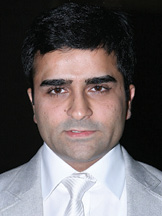The right to free speech is a cornerstone of democracy. In the absence of the right to communicate and express oneself freely, the very idea of democracy would be meaningless.
The Constitution of India recognizes the importance of free speech and expression, and enshrines these as fundamental rights of all citizens. A natural consequence of this right is that what a citizen conveys may not seem politically, socially or morally appropriate to all other citizens in society, and so the question of censorship arises.

Partner
Lall Lahiri & Salhotra
Censorship is most commonly understood to mean control or restriction of the expression of ideas in published media, including art, literature and film. All freedoms granted under the constitution, including freedom of speech, are subject to reasonable restrictions. This concept is easy to explain, but its implementation is typically problematic and controversial.
You must be a
subscribersubscribersubscribersubscriber
to read this content, please
subscribesubscribesubscribesubscribe
today.
For group subscribers, please click here to access.
Interested in group subscription? Please contact us.
你需要登录去解锁本文内容。欢迎注册账号。如果想阅读月刊所有文章,欢迎成为我们的订阅会员成为我们的订阅会员。
Rahul Chaudhry was called to the bar in September 2002. He joined Lall Lahiri & Salhotra in January 2004 and became a partner just four years later. Along with the firm’s founding partners, Anuradha Salhotra and Amar Raj Lall, Chaudhry is regarded as one of the most prominent faces of IP management in India.
LLS House, Plot No. B-28,
Sector – 32, Institutional Area,
Gurgaon – 122001, National Capital Region,
India
Tel: +91 12 4238 2202 / +91 12 4238 2203
Fax: +91 12 4403 6823 / +91 12 42384898
Website: www.lls.in























